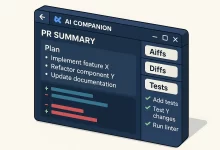Today’s release of the Edge Functions SDK turns edge development from “cross-your-fingers” to “press run.” Instead of juggling vendor-specific shims, you get an opinionated toolchain with a local emulator, unified runtime APIs, and tracing that works out of the box. After a morning of trials in a real repo, the difference feels immediate: faster feedback loops, fewer “works-in-staging” mysteries, and deploys that read like a checklist, not an art project.
What’s new (in plain English)
- Local emulator: Spin up routes, KV/cache stubs, scheduled jobs, and request rewrites on your laptop—hot reload included.
- Unified runtime APIs: A consistent
Request/Response, standard env bindings for secrets, KV, queues, and object storage, plus a typed scheduler. - Built-in observability: Distributed tracing, log correlation, and latency breakdowns with zero extra glue code.
- Safer deploys: Traffic-shifting primitives (percentage, header, geo), health checks, and a one-command rollback.
- Test runner: Contract tests for routes and middleware that mock edge caches and TTLs—no more test doubles that lie.

Edge Functions SDK
Why this matters to everyday teams
Edge was great for speed but painful for certainty. The Edge Functions SDK closes the loop: you can reproduce prod-ish behavior locally, assert contracts in CI, and deploy with guardrails. That means fewer late-night puzzles about cache keys, fewer cold-start surprises, and less finger-pointing between app and platform.
Quick start (15 minutes that pay for themselves)
- Scaffold:
npx edge initand pick “API + static assets.” - Run local:
edge devto boot the emulator; hit/api/healthand watch logs + traces stream. - Add caching: wrap your fetch with
cache({ key, ttl })and verify HIT/MISS in devtools. - Write a contract test: assert headers, TTL, and fallback behavior when the origin 500s.
- Ship safely:
edge deploy --canary 10%and promote on green SLIs.
Practical patterns that actually stick
- Cache-first APIs: Normalize keys and set short TTLs; pair with background revalidation for “fresh-enough” reads.
- Geo-aware routing: Route by latency and feature flag, not just IP country, to prevent surprise rollbacks.
- Idempotent writes: Use request IDs and queue dedupe to survive retries when the edge hiccups.
- Budgeted compute: Treat CPU time and memory like money—track p95 per route and refactor the top offenders weekly.
Common pitfalls—and how to dodge them
- Stale keys: If users see yesterday’s data, you forgot to include locale/user segment in the cache key.
- Secret sprawl: Bind secrets via environment maps; never inline. Rotate on deploy, not by calendar.
- Chatty origin: Coalesce bursts with in-flight deduplication; your origin will thank you during traffic spikes.
- Silent timeouts: Set explicit timeouts and surface them as 504s with a “Retry-After” hint; trace the upstream culprit.
My brief hands-on anecdote
This morning I migrated a rate-limited geo endpoint during a commute coffee. With the Edge Functions SDK emulator, I replayed last week’s logs as fixtures, watched traces light up the slow path, and patched the cache key to include accept-language. Canary at 10%, errors flat, latency down 22%, then promote. It felt like replacing guesswork with steps I could actually trust.
Instrument once, sleep better
Traces tell you what happened; budgets tell you what’s allowed. Use SLO-aligned budgets per route—CPU, memory, external calls—and fail canaries that breach them. With the SDK’s built-in meters, you can catch a rogue JSON parse before it becomes a region-wide pager.
Migrate without breaking things
- Mirror traffic: Run read-only shadows for a day; compare payloads and status codes in traces.
- Lock down headers: Normalize casing/ordering; caches are picky.
- Document contracts: Record expected TTLs, error shapes, and fallback rules—make CI enforce them.
Who should adopt first
- API teams with bursty reads: Cache + background revalidation evens the spikes.
- Commerce and content: Geo-aware flags and canaries let you ship promos without global blast radius.
- Small platforms: Local-first dev and one-command rollbacks reduce on-call load without growing headcount.
Bottom line
The Edge Functions SDK doesn’t just add features—it shortens the distance between “I think this will work” and “I can prove it.” If your team has been waiting for edge tooling that behaves like a modern web framework, today’s release is the green light to standardize.

 FoxDoo Technology
FoxDoo Technology











